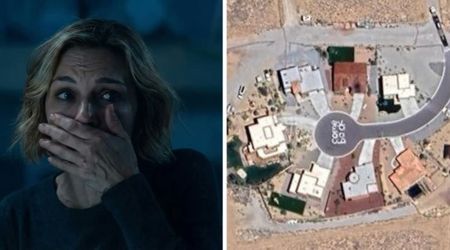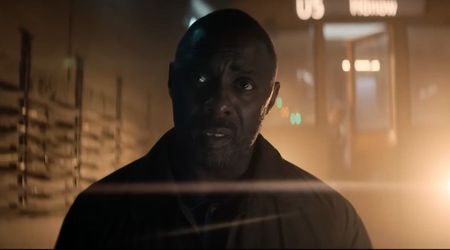Showtime's 'Ready for War' looks at deported veterans, betrayed after they risked their lives as ICE supplies drug cartels with US soldiers

Who deserves to call America their home? For most, it is a no-brainer the men and women who have fought for the country and shed blood defending us against enemies, foreign and domestic, are the most deserving.
But thanks to a controversial 1996 Clinton-era law that deports green card-holding immigrants for any offense, thousands of veterans - some of whom have served multiple tours of duty - have been deported. Most of them are sent back to Mexico where they are homeless, jobless, with no family, no money, and denied access to veteran services like pension, medicines and medical care.
Their U.S. military training, however, does make them vulnerable to being preyed on by Mexican drug cartels who want to "claim" them as footsoldiers in the drug wars.
Ironically, the offenses of such immigrant veterans on U.S. soil (for which they serve time in the U.S. before being deported) are often drug and alcohol-related, stemming from mental health issues they have developed after being in combat. It is like the War on Terror and the War on Drugs dovetailed to find unlikely scapegoats among these "wounded warriors".
Rather than take a cinematic, distant perspective, director Andrew Renzi "embeds" the viewer into the lives of his subjects, opening them up to the anxiety, the feelings of despair and fledgling hope, the deep sense of loss, longing and betrayal felt by these veterans and their families.
The soundtrack soars and falters with the story being told, adding to the film's emotional narrative. Mixing personal interviews, live footage of important events and candid, casual moments, recorded calls, Skype chats and slice-of-life moments (filmed over two years), Renzi peppers the film with mostly close-ups and mid-shots.
The film is simply structured, telling the story of three deported veterans after they have been told: "Thank you for your service, now get out." The first veteran, Hector Barajas, is close to sainthood. Barajas, born in Mexico came to the United States as a child. After serving for six years, he was honorably discharged in 2001.
Changed by his combat experiences, Bajaras says he "made bad decisions", drowning himself in drugs and alcohol to numb himself. It led to him firing a weapon under the influence. Though no one was shot or hurt and he served a two-year prison sentence for his crime, he was deported after he was released and separated from his beloved daughter.
After his one lapse of judgment that cost him his permanent residency and his shot at full citizenship, Bajaras became a model deported veteran fighting to become a U.S. citizen along with veteran rights advocate, Nathan Fletcher. Becoming an advocate himself, he also started "The Bunker", a safe house in Tijuana for deported veterans like him, helping them to find employment, housing and steering them clear of cartels.
On the opposite side of the spectrum is sinner "El Vet" (false name), who was "recruited" by cartel recruiters because he had "skills". He speaks to the filmmakers from behind a mask and says once he caught the attention of the "ruthless" Juarez cartel, his only choice was between being murdered or being paid money for his skillset.
The footage from El Vet's bodycam is spine-chilling as you see him morph into a monster, a far cry from the honorably-discharged hero. For El Vet, instead of taking his orders to kill from the government, he is taking it from the cartel.
The "killing people" part has stayed the same for him. He thinks it is impossible for a deported veteran to be repatriated and he is doing whatever he can to survive. El Vet is the cautionary tale the film drives home with an additional interview with ex-DEA official Michael Vigil who says the U.S. is sending highly-trained military personnel out of the country to become hired guns for Mexican cartels.
These betrayed veterans then turn their military training against U.S. agents and the Mexican police. El Chupon, one of the "sicarios" of the Juarez cartel talks about U.S. military veterans being vital to their operations.
"They [veterans] get out all crazy and come over here and we offer them something nice. They train us to use guns. They don't give a shit about killing [people]," he said. In essence, the U.S. is sending trained soldiers, free of cost, to the enemy across the border.
The mid-point between the saint and the sinner is ordinary Chicagoan Miguel Perez, who was inspired to "fight in Afghanistan" after 9/11. After completing two tours of duty, Perez became a changed man, according to his mother, Esperanza. He became addicted to drugs.
After being jailed for little more than seven years for a felony drug conviction, Perez was waiting to go home to his family and get treatment for his PTSD that had him waking up screaming at night.
Instead, he was put in another prison, the ICE detention center. The film follows his lawyer and family as they try to stop his deportation that ends in failure. Perez is shipped off with just a week and a half of medicine with no prospects of a job or housing.
The film's focus on the particularities of these three stories provides the main heft of the narrative, with footage that puts the focus on the conflicted lives and choices these veterans are left with. Families and veteran rights advocates talk about the "un-American" treatment of these veterans that might be "lawful" but was not "just".
Fletcher, a marine, who became a veteran rights advocate puts this injustice into perspective. He talks about "mostly white" veterans, born in the country, who have committed similar offenses and are enrolled in veteran treatment programs and diversion programs.
But their comrades-in-arms, who are not born in the country, are "diverted" out of the country despite holding a green card. About 40,000 immigrants serve in the armed forces, most of them are lawful permanent residents of the United States, just a step away from full-citizenship.
Since foreign-born immigrants are promised full citizenship for their service, being deported after serving comes as a betrayal, especially after they have sacrificed their mental and physical health to defend the land. 'Ready for War' speaks of only three among the thousands of veterans deported.
Two of these stories have happy endings - Barajas and Perez are both eventually granted U.S. citizenship. But "El Vet" is murdered just months after filming has ended, dead in a war he wasn't meant to be fighting.
'Ready for War' premieres on Showtime November 22 at 9/8c.










